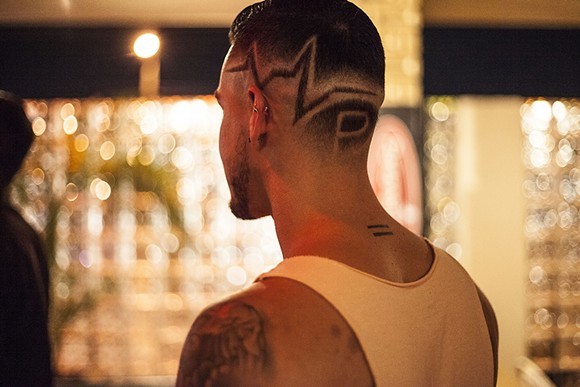Among the many refrains her mother taught her, Kay Ríos kept one saying in her mind the day she left home.
"Cuando te mueras, te van a enterrar sola," her mother would tell her, which means, "When you die, they will bury you alone."
Mamis, papis, abuelitas, tías and your metiche neighbor will tell you this when you're caught sneaking out with your friends to a party or when they find the hidden matching tattoo you got with your bestie. Essentially, they're trying to say, "Your friends ain't shit, and when the going gets tough, they won't have your back."
But Ríos interpreted the saying differently: What's important in our short existence is to live life genuinely, and stay true to ourselves. So at 17, she decided to live her truth and told her mother she was a lesbian.
"She really didn't like that, or like me or my lifestyle," the now 31-year-old of Cuban and Peruvian descent says. "So I left her. I moved from Miami to New York, and I didn't talk to her for like four years."
Ríos didn't stop loving her mother. But she wanted her to know she wasn't going to accept intolerance from anybody, even her.
"Family is nice, but your humanity is greater," she says. "You have to stand your moral ground. That's the only way change ever happens."
And on Saturday, she drove from Miami to Orlando to defend the victims who died while living their truth in the worst mass shooting in modern U.S. history. A lifetime ago, a gunman walked into Orlando's packed gay nightclub Pulse during Latin Night in the early hours of Sunday, June 12, unleashing a siege of terror that would ultimately kill 49 people and wound 53. The people who left us forever included an accountant, a bouncer, college students, pharmacy technicians, dancers, a perfume salesman, fast-food workers, an aspiring firefighter, salon owners, a TV producer, a singer, an Army Reserve captain, theme-park workers and mothers. As we said goodbye at funerals and wakes this past week, we learned they were loved deeply by their partners, families and friends.
And it's important to note that although the victims were from different races and sexual identities, they were overwhelmingly composed of queer Latinos, Latinas and Latinxs, the newly coined inclusive, gender-nonspecific term. Their names were Sotomayor, Reyes, Guerrero, DeJesus Velazquez, Alvear, Honorato. Nearly half of them were Puerto Rican, but there were Mexicans, Dominicans and Cubans, too, and several were undocumented.


